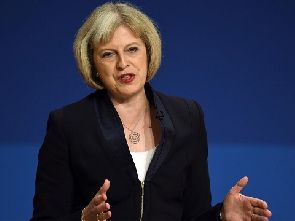British Prime Minister Theresa May’s government faces a vote of confidence on Thursday, three weeks after a disastrous election left her authority in tatters and her Brexit strategy in doubt.
Members of the House of Commons will vote on the Conservative leader’s legislative plans — the Queen’s Speech — in a key test of whether she can stay in power.
The government should pass its programme after forming a deal with Northern Ireland’s Democratic Unionist Party (DUP), whose 10 MPs will vote with the 317 Conservatives in the 650-seat chamber.
But May’s personal authority has been deeply damaged by the election, which she called three years early expecting to win a landslide — only to find herself hanging on by a thread.
The majority of the bills in the Queen’s Speech concern Britain’s departure from the European Union, on which the first formal negotiations took place last week.
But May’s Brexit plan is under scrutiny as many saw the election as a rebuke to her move to pull Britain out of Europe’s single market — its largest trading market — to prioritise cutting EU immigration.
The government is also dealing with the fall-out of a string of terror attacks and the blaze at the Grenfell Tower block in London, which left at least 80 people presumed dead and saw May accused of taking too long to respond.
The prime minister is cutting short a trip to Berlin Thursday with other European allies ahead of the G20 summit next week, to ensure she will be back for the early evening Commons vote.
Brexit plans in flux
Calls to prioritise jobs and growth during the Brexit process are growing, including from finance minister Philip Hammond, whom May was expected to sack after the election but has stayed on.
Cabinet tensions have also seen Hammond take a swipe at eurosceptic Foreign Secretary Boris Johnson over his claim that Britain could “have its cake and eat it” in the negotiations.
“I try to discourage talk of ‘cake’ amongst my colleagues,” the finance minister said during a speech in Berlin.
Hammond emphasised the need for transitional deals to avoid a damaging “cliff-edge” when Britain leaves, but in London, Brexit minister David Davis slapped him down, saying his views were “not quite consistent”.
May’s spokeswoman insisted that “everybody is on the same page”, and nothing had changed.
However, when European Commission President Jean-Claude Juncker was asked at a summit last week whether he was clear on Britain’s position on Brexit, he replied: “No.”
“Whatever May and Davis are saying in public, Brexit policy is in fact in flux,” said Charles Grant of the Centre for European Reform.
He noted the increased influence of Hammond and the Scottish Conservatives, who did well in the election and have also emphasised maintaining trade ties with the EU.
Meanwhile Labour, which won 262 seats, has accepted that Britain will be leaving the single market but wants “full tariff-free access” to protect jobs.
Future leader
“The easiest thing for May to do is to press ahead with the Brexit that her right-wing desires. But that is probably not sustainable in the long term,” Grant said.
He added: “If May doesn’t reinvent herself as a soft-Brexiteer, she is likely to be defeated in parliament.”
May announced a deal with the DUP on Monday where they agreed to back her minority government in confidence and budget votes, in return for an extra £1.0 billion (1.1 billion euros, $1.3 billion) in state aid for Northern Ireland.
But there is doubt about how long the alliance can last, as the DUP’s ultra-conservative views on abortion and gay marriage have caused disquiet among many Conservatives.
Many of May’s MPs have become emboldened by the election to speak their mind — and not just on Brexit.
Conservative lawmakers and the DUP voted together to defeat a Labour amendment to the Queen’s Speech late Wednesday calling for an end to a six-year cap on public sector pay — but not before some expressed their doubts about austerity.
Talk is now of when, not if, May will step down.
Former Conservative minister Nicky Morgan, who was sacked by May, told the BBC that once the Brexit deal was clear, her party “must not miss the opportunity at that stage to think about who we want to be our future leader”.









